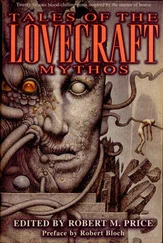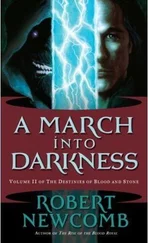Robert Pirsig - Lila. An Inquiry Into Morals
Здесь есть возможность читать онлайн «Robert Pirsig - Lila. An Inquiry Into Morals» весь текст электронной книги совершенно бесплатно (целиком полную версию без сокращений). В некоторых случаях можно слушать аудио, скачать через торрент в формате fb2 и присутствует краткое содержание. Жанр: Современная проза, на английском языке. Описание произведения, (предисловие) а так же отзывы посетителей доступны на портале библиотеки ЛибКат.
- Название:Lila. An Inquiry Into Morals
- Автор:
- Жанр:
- Год:неизвестен
- ISBN:нет данных
- Рейтинг книги:3 / 5. Голосов: 1
-
Избранное:Добавить в избранное
- Отзывы:
-
Ваша оценка:
- 60
- 1
- 2
- 3
- 4
- 5
Lila. An Inquiry Into Morals: краткое содержание, описание и аннотация
Предлагаем к чтению аннотацию, описание, краткое содержание или предисловие (зависит от того, что написал сам автор книги «Lila. An Inquiry Into Morals»). Если вы не нашли необходимую информацию о книге — напишите в комментариях, мы постараемся отыскать её.
Lila. An Inquiry Into Morals — читать онлайн бесплатно полную книгу (весь текст) целиком
Ниже представлен текст книги, разбитый по страницам. Система сохранения места последней прочитанной страницы, позволяет с удобством читать онлайн бесплатно книгу «Lila. An Inquiry Into Morals», без необходимости каждый раз заново искать на чём Вы остановились. Поставьте закладку, и сможете в любой момент перейти на страницу, на которой закончили чтение.
Интервал:
Закладка:
Evolution is recklessly opportunistic: it favors any variation that provides a competitive advantage over other members of an organism’s own population or over individuals of different species. For billions of years this process has automatically fueled what we call evolutionary progress. No program controlled or directed this progression. It was the result of spur of the moment decisions of natural selection.
Mayr certainly seemed to consider the matter settled and this attitude, no doubt, reflected a consensus among everyone except anti-evolutionists. But after reading it Phædrus wrote on one of his slips, It seems clear that no mechanistic pattern exists toward which life is heading, but has the question been taken up of whether life is heading away from mechanistic patterns?
He guessed that the question had not been taken up at all. The concepts necessary for taking it up were not at hand. In a metaphysics in which static universal laws are considered fundamental, the idea that life is evolving away from any law just draws a baffled question mark. It doesn’t make any sense. It seems to say that all life is headed toward chaos, since chaos is the only alternative to structural patterns that a law-bound metaphysics can conceive.
But Dynamic Quality is not structured and yet it is not chaotic. It is value that cannot be contained by static patterns. What the substance-centered evolutionists were showing with their absence of final mechanisms or programs was not an air-tight case for the biological goallessness of life. What they were unintentionally showing was a superb example of how values create reality.
Science values static patterns. Its business is to search for them. When non-conformity appears it is considered an interruption of the normal rather than the presence of the normal. A deviation from a normal static pattern is something to be explained and if possible controlled. The reality science explains is that reality which follows mechanisms and programs. That other worthless stuff which doesn’t follow mechanisms and programs we don’t pay any attention to.
See how this works? A thing doesn’t exist because we have never observed it. The reason we have never observed it is because we have never looked for it. And the reason we have never looked for it is that it is unimportant, it has no value and we have other better things to do.
Because of his different metaphysical orientation Phædrus saw instantly that those seemingly trivial, unimportant, spur of the moment decisions that Mayr was talking about, the decisions that directed the progress of evolution are, in fact, Dynamic Quality itself. Dynamic Quality, the source of all things, the pre-intellectual cutting edge of reality, always appears as spur of the moment. Where else could it appear?
When this prejudice against spur of the moment Dynamic Quality is removed new worlds of reality open up. Naturally there is no mechanism toward which life is heading. Mechanisms are the enemy of life. The more static and unyielding the mechanisms are, the more life works to evade them or overcome them.
The law of gravity, for example, is perhaps the most ruthlessly static pattern of order in the universe. So, correspondingly, there is no single living thing that does not thumb its nose at that law day in and day out. One could almost define life as the organized disobedience of the law of gravity. One could show that the degree to which an organism disobeys this law is a measure of its degree of evolution. Thus, while the simple protozoa just barely get around on their cilia, earthworms manage to control their distance and direction, birds fly into the sky, and man goes all the way to the moon.
A similar analysis could be made with other physical laws such as the Second Law of Thermodynamics, and it seemed to Phædrus that if one gathered together enough of these deliberate violations of the laws of the universe and formed a generalization from them, a quite different theory of evolution could be inferred. If life is to be explained on the basis of physical laws, then the overwhelming evidence that life deliberately works around these laws cannot be ignored. The reason atoms become chemistry professors has got to be that something in nature does not like laws of chemical equilibrium or the law of gravity or the laws of thermodynamics or any other law that restricts the molecules' freedom. They only go along with laws of any kind because they have to, preferring an existence that does not follow any laws whatsoever.
This would explain why patterns of life do not change solely in accord with causative mechanisms or programs or blind operations of physical laws. They do not just change valuelessly. They change in ways that evade, override and circumvent these laws. The patterns of life are constantly evolving in response to something better than that which these laws have to offer.
This would at first seem to contradict the one thing that evolutionists insist upon most: that life is not responding to anything but the survival of the fittest process of natural selection. But survival of the fittest is one of those catch-phrases like mutants or misfits that sounds best when you don’t ask precisely what it means. Fittest for what? Fittest for survival? That reduces to survival of the survivors, which doesn’t say anything. Survival of the fittest is meaningful only when fittest is equated with best, which is to say, Quality. And the Darwinians don’t mean just any old quality, they mean undefined Quality! As Mayr’s article makes clear, they are absolutely certain there is no way to define what that fittest is.
Good! The undefined fittest they are defending is identical to Dynamic Quality. Natural selection is Dynamic Quality at work. There is no quarrel whatsoever between the Metaphysics of Quality and the Darwinian Theory of Evolution. Neither is there a quarrel between the Metaphysics of Quality and the teleological theories which insist that life has some purpose. What the Metaphysics of Quality has done is unite these opposed doctrines within a larger metaphysical structure that accommodates both of them without contradiction.
The river was opening up now into a broad lake that the chart beside Phædrus identified as the Tappan Zee. Like the Zuider Zee, he supposed. Nice that they’d kept the old Dutch name. He turned and looked behind him and there was the mountain range that he’d passed through. The last range. The American continent was coming to an end. Soon this strong heavy boat would be out in the Atlantic for the first time, where it really belonged. That felt exciting after all these weeks. The boat was built to cross oceans and circumnavigate continents, not just run the buoys down placid inland waterways.
It was still early afternoon. The boat was making ferocious speed. He supposed that contraction of the river by the mountains must have made it speed up. Now, according to his calculations, the tide would begin to reverse and it would be slower going.
Anyway, that migration of static patterns toward Dynamic Quality he’d been thinking so much about seemed to hold up so far. In the past when ideas like it had been defeated they were always knocked down by the assumptions of a conventional metaphysics of substance, but with the Metaphysics of Quality behind it, it stood up. He’d tried dozens of times to think of how it could be knocked down with one argument or another but he’d never found anything that worked. And so in the months since it had emerged he had tried to work out various refinements.
The explanation of life as a migration of static patterns toward Dynamic Quality not only fitted the known facts of evolution, it allowed new ways of interpreting them.
Читать дальшеИнтервал:
Закладка:
Похожие книги на «Lila. An Inquiry Into Morals»
Представляем Вашему вниманию похожие книги на «Lila. An Inquiry Into Morals» списком для выбора. Мы отобрали схожую по названию и смыслу литературу в надежде предоставить читателям больше вариантов отыскать новые, интересные, ещё непрочитанные произведения.
Обсуждение, отзывы о книге «Lila. An Inquiry Into Morals» и просто собственные мнения читателей. Оставьте ваши комментарии, напишите, что Вы думаете о произведении, его смысле или главных героях. Укажите что конкретно понравилось, а что нет, и почему Вы так считаете.











